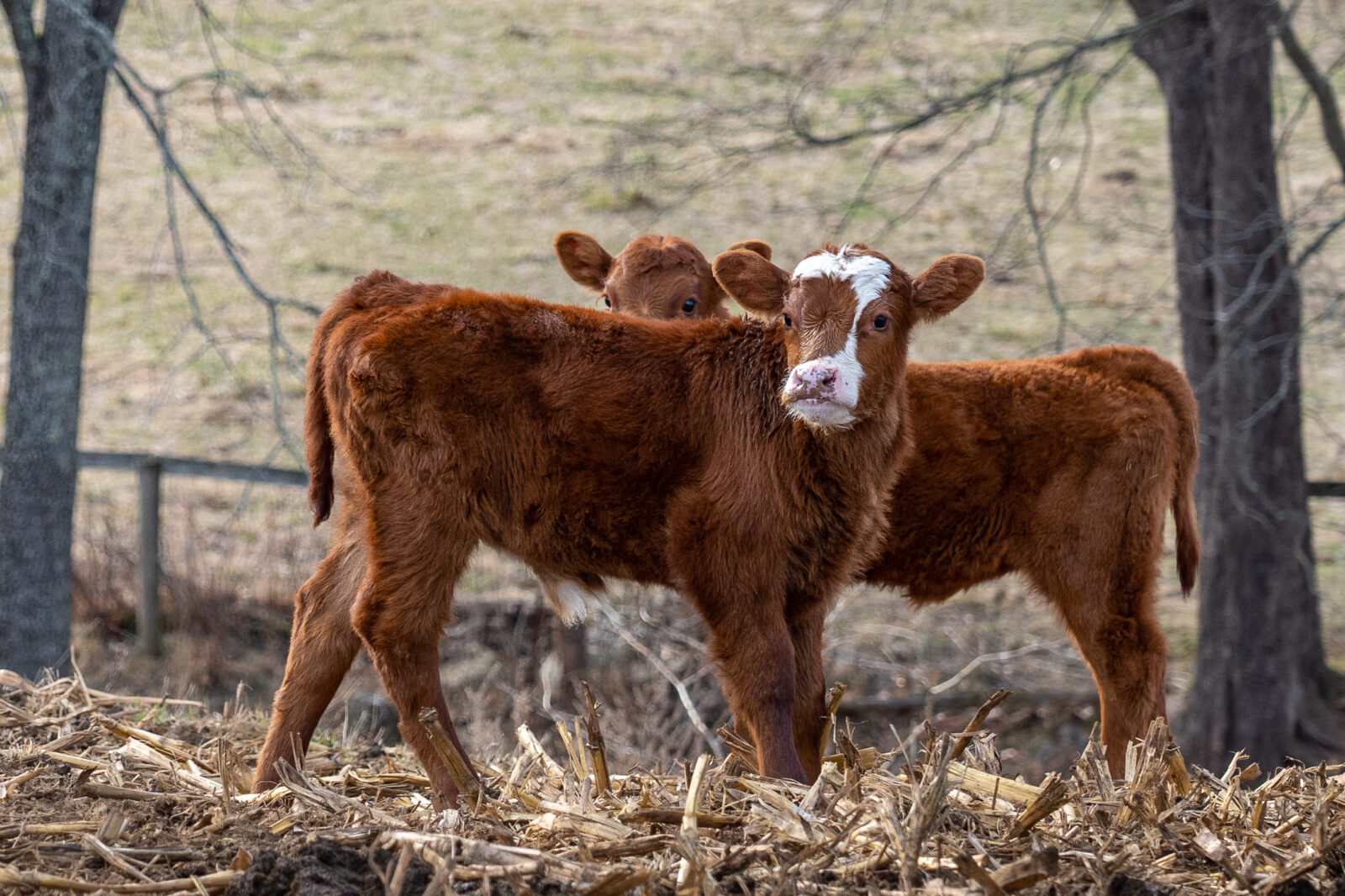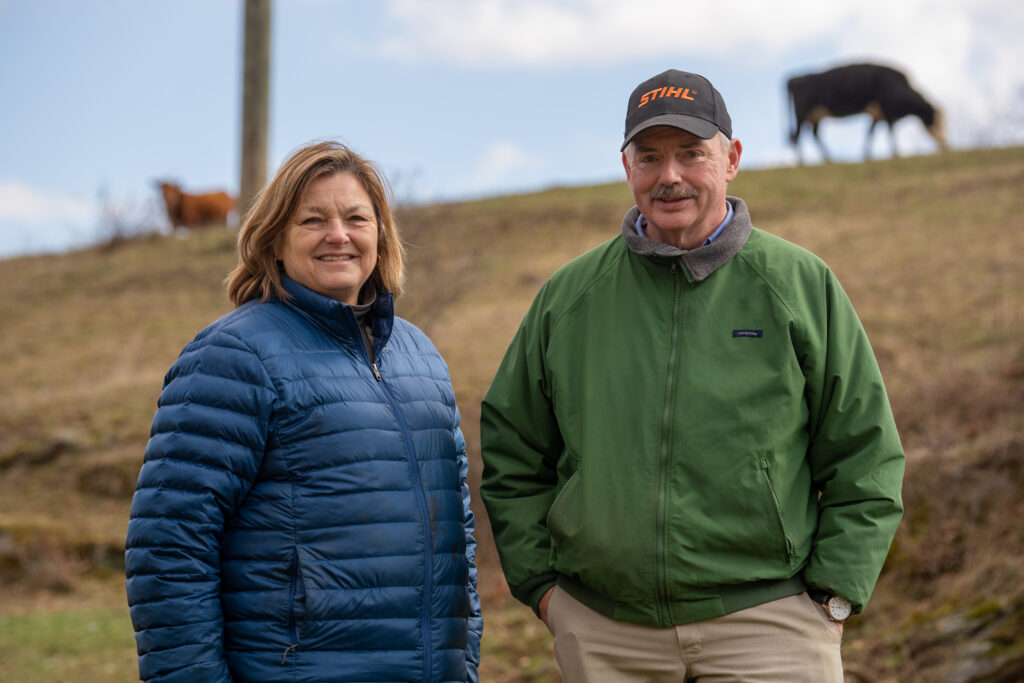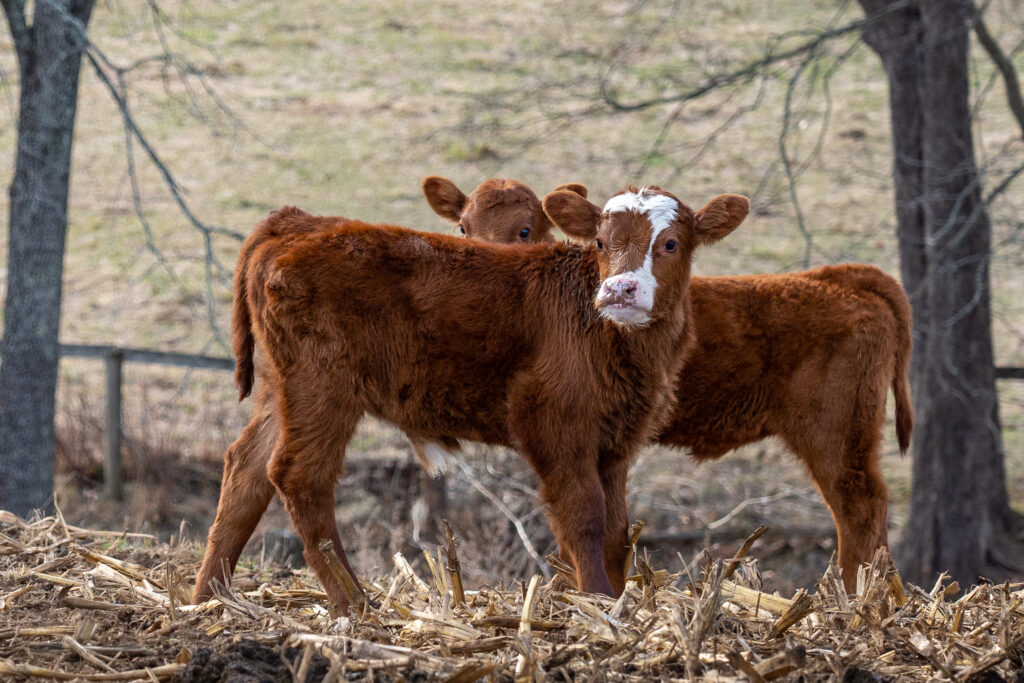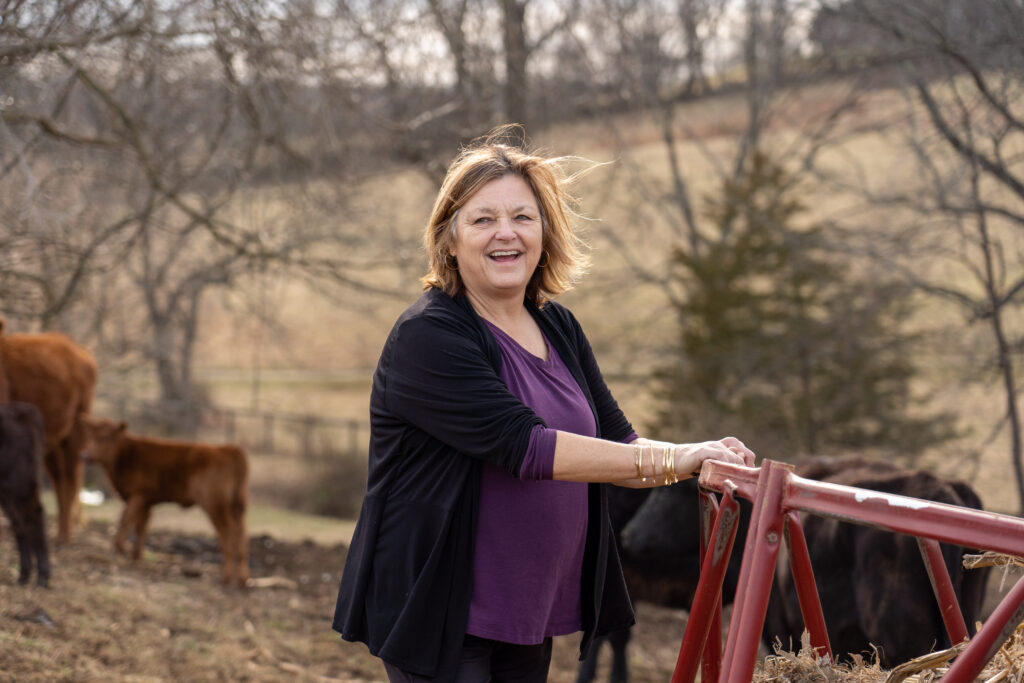How One Family’s Ninth-Generation Cattle Farm Was Saved

By Tracy Lind | Photos by Hugh Kenny
On a crisp spring morning, Dean and Carina Elgin and their border collie Jenny walk across the rolling hills and past the barn and cattle at Mountain Hollow Farm, nestled in the Bull Run Mountains.
Along four streams that flow across the property into Little River and Goose Creek, new fencing is going up to keep cattle and their waste out of the waterways. Around the farm, new fencing crosses the land, dividing it into smaller pastures.
The Elgins believe they’re lucky to live here in northern Fauquier County. If not for The Piedmont Environmental Council’s short-term loan and a state cost-share program that helped pay for the new fencing, the old would have just deteriorated.
“We couldn’t have afforded it otherwise, when all the fences fall down,” Carina says. “Dean would’ve had to give up the cows and farming. This lets us start anew.”

Dean and Carina are ninth-generation Elgin farmers. “My great-grandfather was a cattle dealer and a cattle raiser,” says Dean, who helped run the dairy farm with his father and three brothers before returning to the cattle operation he runs today. “And then my father took over his operation and got into the dairy business around 1955. It was a good way to raise a family,”
Land in this valley has been in the family since the late 1700s, and centuries of farming have taken their toll. Historically, all the cattle had access to the creek. “That was our watering system. That was the norm in that day,” Dean says.
The streambanks eroded under the daily foot traffic of generations of cattle, and the pastures struggle to remain productive for grazing. In 2015, the Elgins wanted to restore the land and improve the overall farm operation by deploying some agricultural management practices that weren’t known to their ancestors.

But there was one problem. Although the Elgins qualified for a cost-share program through the John Marshall Soil and Water Conservation District—one that would pay for fencing, gates, hardened stream crossings, water pumps and water troughs for livestock—those programs only reimburse landowners after a project is completed. Like many working farmers and landowners, the Elgins couldn’t afford the more than $120,000 upfront cost, especially as Dean faced health issues that led to a successful heart transplant in 2018. The projects were put on hold indefinitely, and the pastures and streambanks continued to deteriorate.
Mountain Hollow Farm got its new lease on life last year, when PEC offered a loan to help the Elgins take advantage of the cost-share program. Now, the Elgins are fencing out over 4,100 feet of streams and installing a new well and watering system for livestock. Dean says he’s looking forward to seeing what will happen now that the cattle can’t access the water.
“There’s something to clean water,” he says. “All of a sudden the cattle are drinking well water versus stream water. They’re not smart enough not to drink downstream from their friends upstream.”

New field cross-fencing will also allow the Elgins to do rotational grazing. “One thing we’re hoping by doing this cross-fencing is we’ll have more lots, smaller, but more manageable,” Dean says. “[The cattle can] go and graze in this field for a while, while the other [field is] coming back. That’s some of the hope about how it’s going to help me with my cattle operation. I can get a little more out of each acre.”
The Elgins will repay the PEC loan after being reimbursed from the cost-share program, and in the end, will have incurred no out-of-pocket expenses.
PEC’s short-term loan was made through the organization’s James M. Rowley Goose Creek Conservation Fund with a grant from the Land Trust Alliance Land and Water Initiative. The fund supports on-the-ground projects that improve water quality and habitat within the Goose Creek watershed, covering about 247,000 acres in Loudoun and Fauquier counties.
Dean and Carina believe the loan program will help other farmers take advantage of cost-share programs as well. “Most people who are making a living in agriculture these days aren’t gonna have the bank account for the upfront costs,” says Dean.
Carina agrees: “It’s saving the family farm and allowing our 10th generation to inherit it. Property values keep going up, and we don’t want to have to move. This helps us keep the family farm.” ML
This article first appeared in the May 2020 issue of Middleburg Life.
PEC’s James M. Rowley Goose Creek Conservation Fund has helped protect 14,000 acres, including Gilberts Corner Regional Park and Sunnybank Farm. PEC manages 11 conservation funds that support on-the-ground conservation and habitat restoration projects within PEC’s nine-county region. Most operate with an advisory committee that helps identify projects and provide information to landowners. All provide cost assistance for protecting land with a conservation easement or through fee-simple purchase. They also offer short-term loans to landowners, like the Elgins, who want to work with their local soil and water conservation district on land management cost-share programs. For more information on the PEC conservation funds, email conservation@pecva.org.




